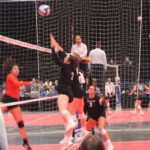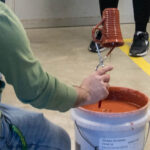KCC Library Contributed Column
Discovering reading material for research or pleasure is easy to do with a little practice.
The catalog has always been the backbone of a library collection. Before there were electronic databases to locate items, there were drawers full of little cards; the precursor of databases.
In the days of printed catalogs, indexes, including books, card catalogs served as databases for periodicals. The modern library catalog uses the same fundamental attributes for discovering resources, but it also greatly expands the discovery process. To explain a little bit about how the old system worked can illuminate the design principle behind the electronic catalog.
The card catalog used to be divided into three main sets for search functions: Author, Title, and Subject.
In today’s electronic catalog search engines, as is the case in ours [www.kirkwod.edu/library], the default setting is often set to a keyword search.
Keyword searching is great when you don’t really have knowledge of what you’re searching for, but when you do know, the old fashioned functions are most handy.
If you know the author, title, or subject, use the pulldown function to search for best results. Using the advanced search function allows you to combine these functions and has other functions as well; most notably the ISBN search.
Recently, an added feature has been inserted into the advanced search function. You can search into database types by clicking on one of the featured database types to pull from a set of databases or a single database in your catalog search.
After submitting your search, your results page will include results from electronic journals that these resources are stored in. Clicking on those results will help you quickly access a trove of peer reviewed, scholarly articles.
Limiters on the left side of your results page can help you sort what you do and don’t want in your results – date ranges, resource types, and more features are included.
I want to encourage you to enjoy the rich features in our OCLC Worldcat driven collection, and strongly encourage you to ask questions about how to customize your search process. There are so many other features that we would be happy to help you use and understand.
Categories: Feature










